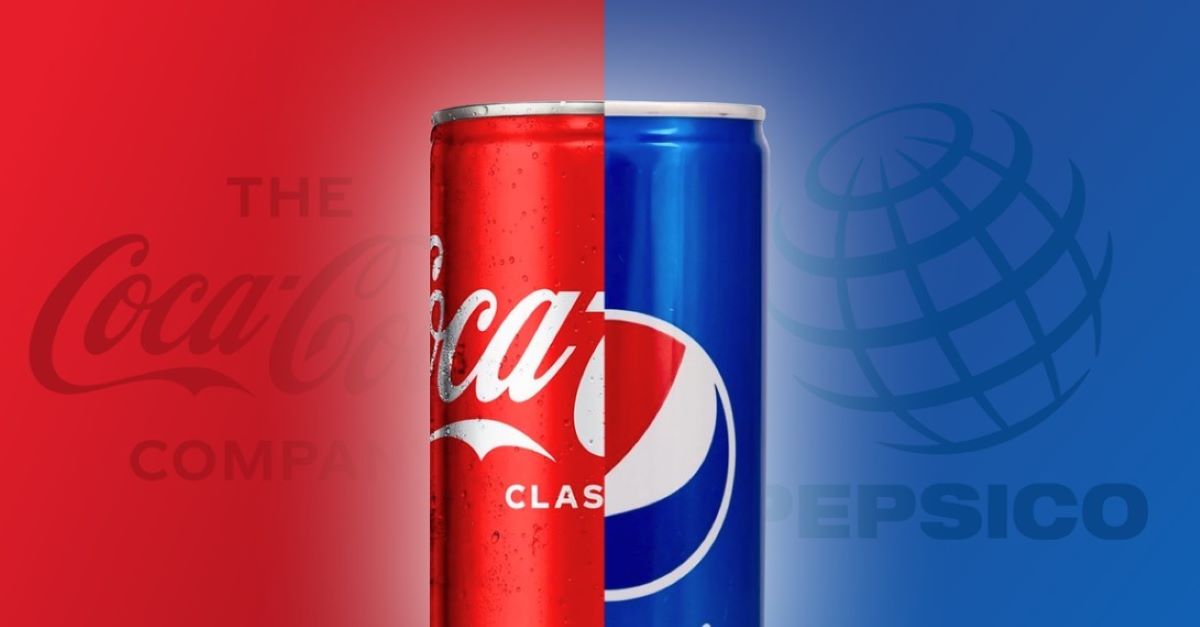Trump Tariff Makes Coke Better Than Pepsi in Soda War
Cola has become an unlikely defense strategy in Trump's tariff battle, as inelastic demand supports soda sales amid sluggish consumer spending. However, coca-cola is far better positioned than Pepsi.S

Cola has become an unlikely defense strategy in Trump's tariff battle, as inelastic demand supports soda sales amid sluggish consumer spending. However, coca-cola is far better positioned than Pepsi.
So far in 2025, coke shares are up 18% year-to-date, while Pepsi has fallen more than 5%.
PepsiCo's long-standing strategy of producing its soda concentrate in Ireland to benefit from low taxes has now become a liability, according to WSJ. A new 10% tariff on imports—triggered by the U.S. trade war—now applies to nearly all of the concentrate used in Pepsi and Mountain Dew sold in the U.S.
Coca-Cola also produces concentrate in Ireland, but the key difference is that Coke manufactures most of its U.S. soda concentrate domestically—in Atlanta and Puerto Rico. As a result, it avoids the tariff hit that Pepsi is now absorbing.
Both soda giants are also exposed to a separate 25% U.S. tariff on imported aluminum, a key component of soda cans. Coca-Cola CEO James Quincey has acknowledged the cost pressures from importing aluminum, primarily from Canada, but noted the company could mitigate that by shifting to plastic packaging or sourcing metal domestically.
For Pepsi, the timing couldn't be worse. The company has been losing ground in the U.S. soda market for years. Dr Pepper recently overtook Pepsi-Cola as the No. 2 soda brand, and pepsico is now trying to revive its core beverage sales after years of prioritizing snacks and energy drinks. The new tariffs threaten to make that recovery even harder.
PepsiCo still manufactures concentrate in Texas, Singapore, and Uruguay, but most of its U.S. supply continues to come from Ireland—its global concentrate hub since 1974.
Independent Pepsi bottlers, many of them small and family-owned, say they're bracing for higher costs due to the tariffs. The concentrate arrives in both 55-gallon drums and tanker trucks, and any increase in price will squeeze their margins—further complicating Pepsi's efforts to compete with Coke.
Meanwhile, in the world of blue jeans, tariffs are also shifting competitive dynamics. Levi Strauss sources heavily from countries now hit with U.S. duties, while Wrangler's parent company manufactures a large portion of its clothing in Mexico, which remains protected under the US-Mexico-Canada Agreement.
Even toothpaste makers are being pulled into the fray. Colgate produces some toothpaste in Mexico, while most of Crest's supply is made in the U.S., insulating it from the tariff impact.
Disclaimer: The views in this article are from the original Creator and do not represent the views or position of Hawk Insight. The content of the article is for reference, communication and learning only, and does not constitute investment advice. If it involves copyright issues, please contact us for deletion.